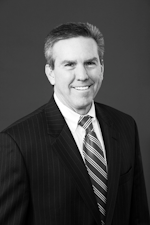Editor's note: This. is part two of a two-art article. Part one appeared in the December 2020 issues of Dental Economics. To read it, click Avoid the top10 financial mistakes from the pandemic (Part 1)
Last month we covered five of the 10 common pitfalls to avoid in order to reach financial independence, despite today’s trying times. Here is the remainder of our list.
Making your spending changes permanent
When the pandemic struck, the economy came to a virtual standstill. Travel, dining out, entertainment, sports, and other activities stopped cold. As a result, your personal spending likely dropped by thousands of dollars a month. Ironically, most doctors seemed just as happy, if not happier, while spending less.
Now that your practice has reopened, don’t automatically revert to your former spending levels. Maintaining your pandemic spending level will allow you to save more and reach your financial goals much more quickly. For example, reducing your spending by $2,500 a month means you’ll need $811,500 less to retire at age 65, while still maintaining your standard of living. For the average doctor, this can take as much as three years off of how long you must stay in practice, which can be critical if you don’t enjoy working in this new normal.
Rushing the decision to sell
During the pandemic, you likely had more time than ever to reevaluate your dental career. After enduring all of the challenges of reopening, 5%–10% of dentists decided it was time to declare victory and sell. Unfortunately, most rushed into this decision emotionally and without fully considering the economic consequences.
Since more than 75% of doctors don’t know how much they’ll need to maintain their standard of living during retirement, they “started the treatment without taking records.” Retiring blindly can be a financial disaster. While it’s fine to change career plans, be sure to have a well-designed financial plan in place before you pull the trigger.
Not taking advantage of Roth IRA conversions
Since your practice was closed for at least two months, your 2020 income will likely be lower. Moreover, taking advantage of the COVID-19 tax breaks discussed in the article “Top 50 year-end tax planning strategies,” found at mcgillhillgroup.com, means your 2020 tax liability could be substantially reduced. Meanwhile, tax rates are forecast to rise significantly in the future to cover the massive government deficits. This makes it an ideal time to decrease your future taxes by using a Roth IRA conversion. You may have overlooked this opportunity during the downturn, so ask your investment advisor if it could benefit you now.
Not discussing your changing finances with your spouse
Most marriages that end up in divorce are due to financial problems. Plus, divorce can be financially devastating. Ironically, most financial problems could be resolved with constructive communication and cooperation. Unfortunately, when communication stops, the finger-pointing begins and the relationship spirals downhill.
The pandemic has likely changed your finances substantially, so it’s time to change or develop a financial game plan in response. If you can’t start a constructive conversation with your spouse by yourself, enlist a financial coach to help you work through your challenges and chart a new course for financial freedom based on a cooperative effort toward a common goal. Your marriage and your finances will be much better off.
Not remembering what’s important
When the pandemic closed your practice, you had plenty of time on your hands. Things got simpler due to restrictions on your activities. Most doctors enriched their lives by spending more time with family and friends, exercising more outside, relaxing, and improving their quality of life. As your practice has grown busier after reopening, don’t forget what you learned. Make time for what’s important, display an attitude of gratitude, and use some of your money to help others, which will, in turn, maximize your quality of life.
WES LYON, CFP, CPA, is a tax and business planning advisor. JOHN K. McGILL, JD, MBA, CPA, publishes The McGill Advisory newsletter through John K. McGill & Company Inc., a member of The McGill & Hill Group LLC. It’s your one-stop resource for tax and business planning, practice transition, legal, retirement plan administration, CPA, and investment advisory services. Visit mcgillhillgroup.com.








